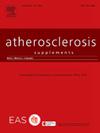Immunoadsorption in nephrotic syndrome: Where are we now and where are we going from here?
Abstract
Idiopathic nephrotic syndrome (INS) is characterized by three different entities, namely minimal change disease (MCD), focal segmental glomerulosclerosis (FSGS) and membranous nephropathy (MN). While there is an increasing understanding of primary MN with the discovery of antibodies directed against phospholipase A2 receptor (PLA2R Ab) and thrombospondin type 1 domain-containing 7A, circulatory factors causative of inducing MCD and FSGS remain in part elusive. Extracorporeal treatment forms (mostly plasma exchange) have been reserved for patients with either a disease course refractory to commonly prescribed immunosuppressive drugs or to patients with recurrence after kidney transplantation. There is a paucity of data supporting the use of immunoadsorption (IAS) in the management of MCD and MN and evidence to perform LDL-apheresis in the former is limited to reports from Japan. Treatment with IAS in primary FSGS has shown mixed responses, possibly biased by including treatment-resistant cases in the absence of genetic testing. In those with recurrence of the disease following kidney transplantation, IAS has shown high remission rates with an acceptable safety profile. There is a need to compare IAS to plasma exchange (PLEX) in this indication and due to a higher amount of plasma processed during one session, IAS may have advantages over PLEX. Removal of PLA2R Ab by IAS is currently being tested in a phase II clinical trial. More clinical trials in a prospective and randomized fashion need to be designed to prove the concept that IAS may be a treatment option for INS. While PLEX is still the leading extracorporeal treatment form in these indications, this review aims to highlight the efficacy and safety of IAS in the management of INS.

 求助内容:
求助内容: 应助结果提醒方式:
应助结果提醒方式:


